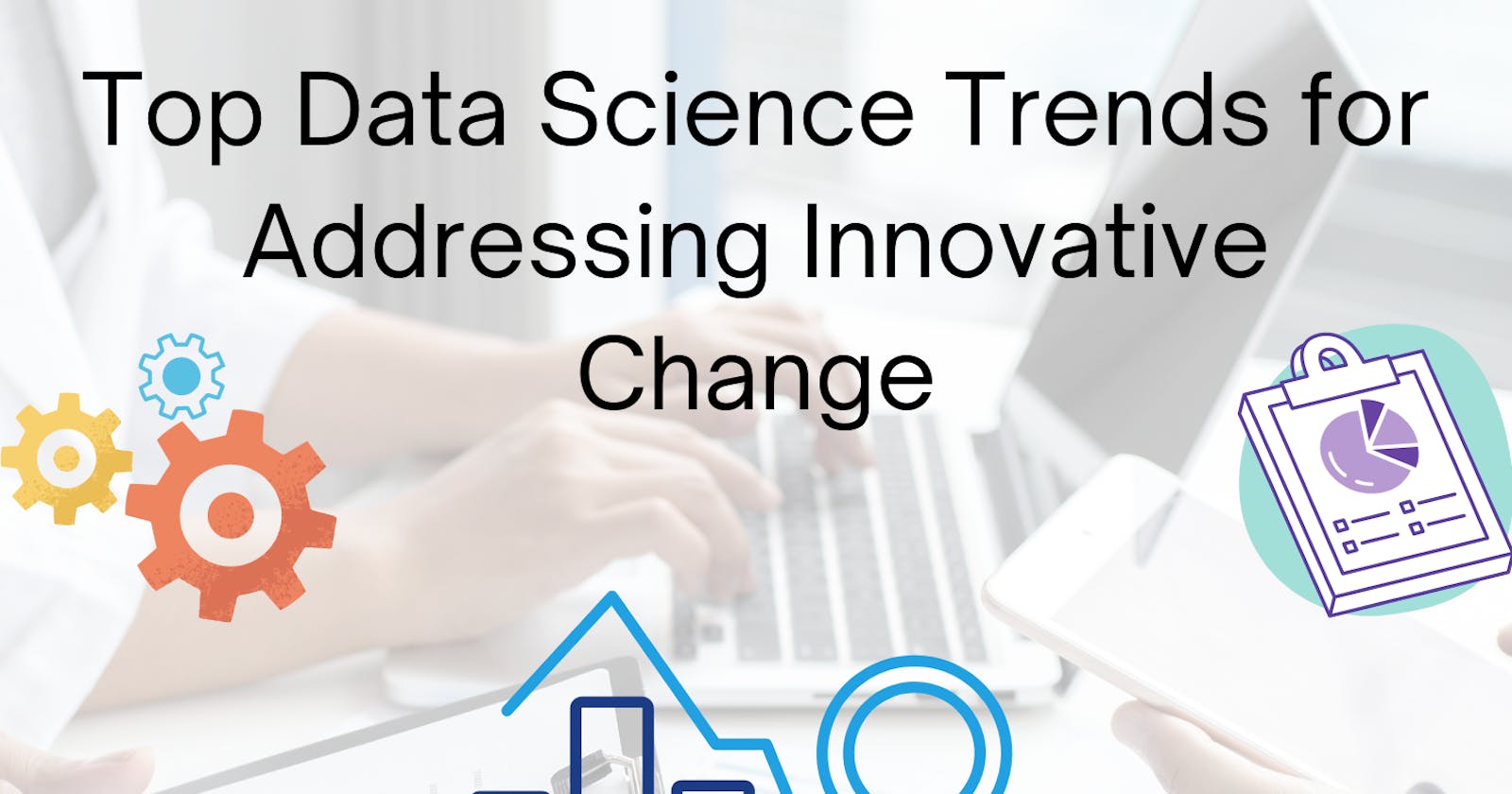Today, almost every business receives massive amounts of data that can seem chaotic and overwhelming. The same information is used to create innovations that improve lives across industries, simplify business decisions, and build rich customer experiences. Data is merely a collection of rows and columns with confidential information when viewed in isolation.
Here, I have outlined a few data science trends and job opportunities for data scientists in light of the data challenges businesses are currently facing.
Top Data Science and Analytics Trends
- Businesses select data science as a crucial business function.
Numerous businesses and their executives are recognizing big data's value. In order to collect more data and profit from it, companies are heavily investing in AI and ML technologies. Organizations also invest in data scientists to gain access to these essential business insights. Due to the power of big data, organizations are being pushed to make data analytics a core function run by Chief Data Officers (CDOs). But only about 60% of the data in an enterprise is used for analytics. In order to deliver insights that assist in navigating disruptions, CDOs are expected to collaborate closely with CEOs on comprehensive data strategies.
- Across industries, there is a demand for data scientists and CDOs.
Data scientist and data analyst positions are expected to grow by 27% by 2030, compared to the average growth rate for all occupations of 8%. With an average base salary of $113,736 per year, a data scientist position comes in second on the list of the 50 Best Jobs in America for 2023, according to a quick glance through Glassdoor.
Data scientists must learn new skills quickly, constantly adapt, and change their approaches. Employers anticipate that data scientists will be knowledgeable about the platforms and tools used by AI, ML, and IoT. They expect highly skilled programmers who can also code and analyze vast amounts of data and draw conclusions from each pattern to help the organization make decisions quickly. One can become a data scientist by mastering the in-demand skills with a data science certification course in Pune available online.
- Instead of just data analysts, employers need qualified data scientists.
Big data navigation calls for a curious mind, a love of delving into data patterns, and the capacity to predict and derive valuable insights. Businesses today need data science professionals who can communicate business strategy across enterprise functions while being technical experts. Although there are educational institutions that offer degrees in data science and analytics, professionals must be agile enough to adapt to shifting business environments.
To keep up with the digital transformation, the complexity, and the growing volumes of data, data scientists will need to pursue lifelong learning. Data science professionals will find an accelerated path to senior roles in organizations if they continue to upskill and re-skill throughout their careers. Mid-level and senior-level professionals can compete in this data-driven economy by enrolling in high-quality online programmes offered by reputable international universities through Emeritus.
- CDOs will promote a data-driven culture throughout the company.
Businesses are quickly transitioning to a digital environment with new tools and technology, and employees are put in the middle of it all. In response to COVID-19 disruption, 69% of boards of directors have accelerated their digital business initiatives, according to the 2021
Gartner Board of Directors survey. According to 78% of respondents, analytics will be the pandemic's top game-changing technology. The organization's digital transformation needs to be led by CDOs. A chief data officer will be hired in 2020, according to 57% of senior Fortune 1000 business and technology decision-makers. In order to acclimate the enterprise to the power of data technologies, the CDOs do everything from upskilling the current workforce to encouraging the adoption of new data platforms.
- Data-driven technologies for improved customer experiences
Customers are more open to sharing their data and at ease with digital interactions than ever before. Customers anticipate personalized experiences and services from businesses. One-touch access to all customer data and purchasing patterns is essential to the company, whether it be for AI chatbot conversations or team member calls for customer support. Businesses must combine all customer communication channels into a single, clear, and comprehensive data point. Huge organizations with large amounts of big data now have the ability to integrate various data sources thanks to technologies like Datafabric seamlessly. Data fabric decreases integration design, deployment, and maintenance times by 30%, 30%, and 70%, respectively.
The business can access customer insights across the entire organization by implementing enabling technologies like data fabric. Then, different divisions, goods, and services in your company work to provide tailored customer experiences. How our company can deliver customized experiences to retain each customer will be one of the data scientists' future focus areas. Analysts need to create strategies to transform customer experiences by utilizing data insights. In order to advise product managers on new product features, improved UX/UI on digital platforms, or even improvements in processes for customers, data scientists will closely collaborate with departments across the organization.
Summary
Today, data science and analytics are beneficial to almost every industry. Data analytics also provides other businesses with actionable strategies to address upcoming challenges in a data-driven economy, even though some large companies use the power of data at a macro level to support bottom-line growth. To learn more about the data science techniques and tools, join the best data science course in Pune, for working professionals wishing to change their careers.
